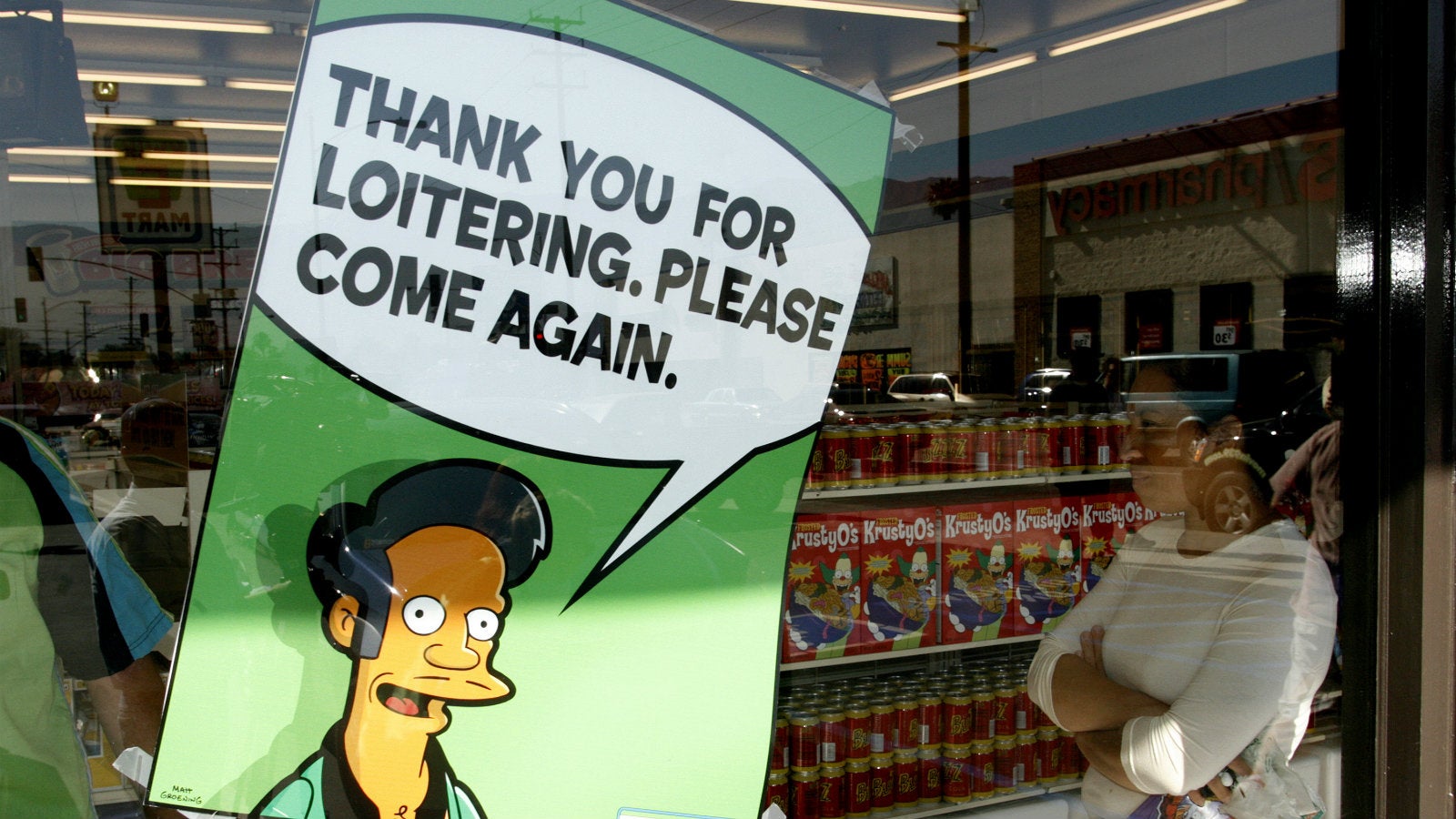The voice of Apu on “The Simpsons” tells Stephen Colbert he’s willing to “step aside”
Hank Azaria is finally ready to do something about the problem with Apu.


Hank Azaria is finally ready to do something about the problem with Apu.
Weeks after The Simpsons aired a controversial episode that effectively dismissed the criticism of its long-running stereotypical portrayal of the Indian convenience-store owner, Azaria, who voices the character, told Late Show host Stephen Colbert that it’s time to listen to South Asians in the US.
“I really want to see Indian, South Asian writers in the room, not in a token way but genuinely informing whatever new direction this character may take, including how it is voiced or not voiced,” he said on April 24. “I’m perfectly willing and happy to step aside or help transition it into something new.”
Apu Nahasapeemapetilon was long the only Indian character on American television, and his voice and portrayal have influenced the way Indians and Indian-Americans have been perceived and treated in the US for years. In 2017, the documentary The Problem with Apu created by the comedian Hari Kondabolu sparked a national conversation over how the stereotype affected the lives of Indian-Americans by presenting Indians as a joke on screen.
But The Simpsons responded this year with a scene widely criticised by viewers, including Kondabolu. In it, Lisa Simpson—the family’s bookish daughter and often the show’s moral centre—speaks directly to the TV audience: “Something that started decades ago and was applauded and inoffensive is now politically incorrect. What can you do?” The camera then pans to a framed photo of Apu inscribed with the line, “Don’t have a cow!”
Azaria, who declined to be interviewed for Kondabolu’s documentary, had acknowledged in the past that the depiction of Apu was a stereotype and “not tremendously accurate.” Now, he says he hopes The Simpsons will take into account what Indian and Indian-American viewers want for the character.
“It not only makes sense but it just feels like the right thing to do,” he told Colbert.